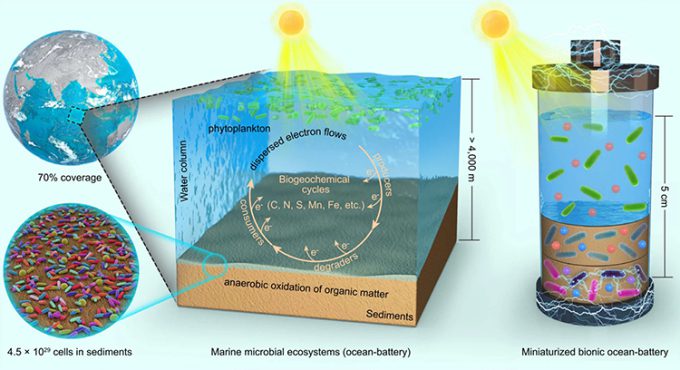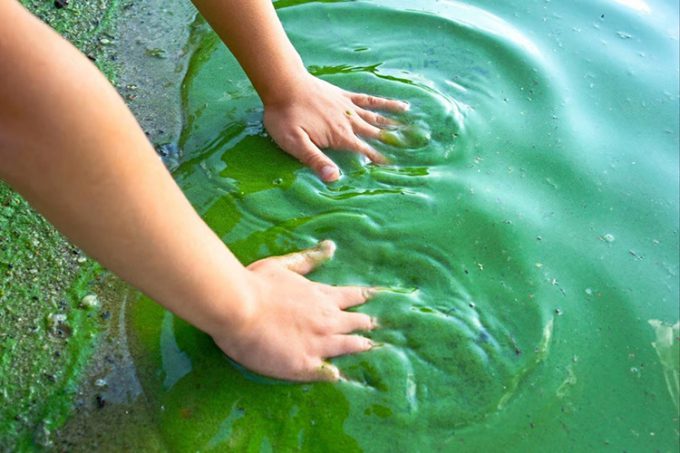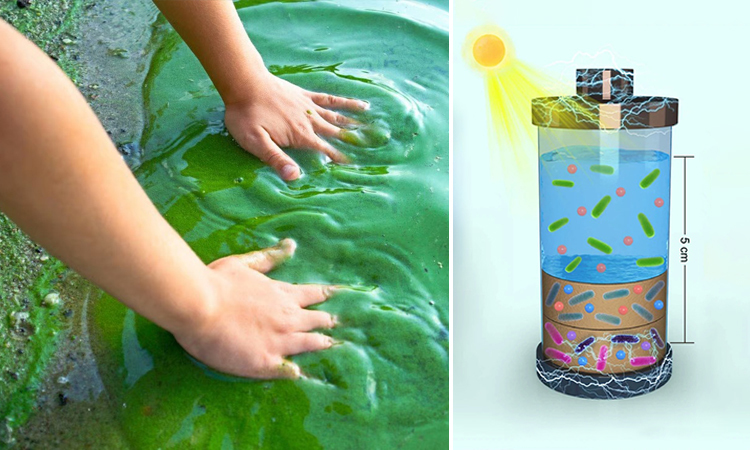Chinese scientists combine microbes with seawater to convert light into sugar, then use the sugar to generate electricity.
O SCMP reported on Oct. 10 that this type of bio-battery can deliver a maximum of 380 microwatts and operate stably for more than a month, making it ideal for ultra-low energy use facilities. Currently, the performance of the battery cannot match that of semiconductor photovoltaics, but it represents a more environmentally friendly and more cost-effective way.
Research activities under China State Key Laboratory of Microbial Resources, Qingdao Institute of Bioenergy and Bioremediation Technology, Tianjin Institute of Industrial Biotechnology, Academy Chinese Science Joint Implementation – published in the journal Nature communication.

Simulation of marine microbial ecosystems (left) and biological marine batteries (right). Image: Zhu Huawei
“The miniaturized bio-ocean battery is inspired by marine microbial ecosystems,” said lead author Zhu Huai from the State Key Laboratory of Microbial Resources in China.
Algae such as cyanobacteria, also known as cyanobacteria, are the main producers of marine microbial ecosystems. They absorb solar energy and use carbon dioxide to produce organic matter. It converts solar energy into electrons and stores it in organic matter.
After decomposition, some organic matter settles in the seabed sediments, where they become nutrients for microorganisms and participate in their metabolism.
Solar energy is the main driver in these biogeochemical cycles. To increase efficiency, scientists built a special device that does this cycle in the battery.
The team added four species of microbes, including algae, to a device filled with seawater to mimic the structure of a microbial ecosystem: one species acts as a primary producer. , one species is primary decomposer and the other two are final. customers.

Algae are the main producers of marine ecosystems. Image: SCMP
First, the producer organism produces sucrose through photosynthesis. The decomposer then breaks down the sucrose into lactate. Next, the ingesting organisms further break down the lactate and eventually generate electricity.
“This not only proves that the four-species system is ideal in terms of energy density and stability, but also shows that maintaining a complete three-level environmental structure is an efficient way to transform bio-photovoltaic learning,” Zhu emphasized. “Batteries can be an alternative source of electrical energy for ultra-low-power facilities such as the environmental sensors of the Internet of Things. A small bio-ocean battery producing hundreds of microwatts is enough”.
Powered solely by solar energy, this biobattery has the potential to function on Mars as long as water, carbon dioxide and minerals are available.
The team is looking for effective ways to increase power generation. “Making seawater batteries today is relatively complicated. We are looking at automating this process using 3D printing technology,” Xu added.
Don Duong (O SCMP)

Prone to fits of apathy. Unable to type with boxing gloves on. Internet advocate. Avid travel enthusiast. Entrepreneur. Music expert.



